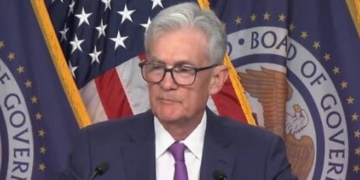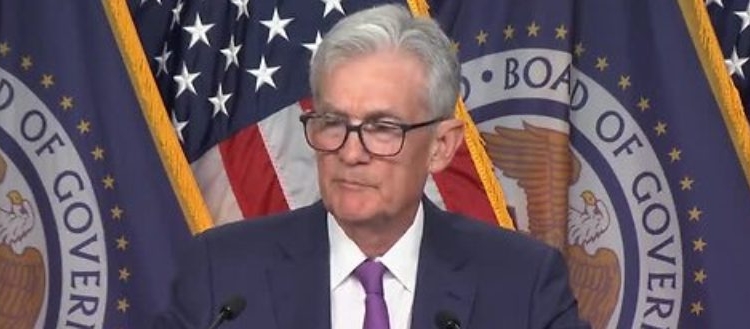The Federal Reserve announced Thursday that it would lower its federal funds rate target range by 0.25% in a push to boost the U.S. economy.
The Fed’s decision to lower the range to between 4.50% and 4.75% follows a September cut of 0.50% as inflation decelerates and the labor market softens. The previous rate cut was preceded by several democratic senators calling for an aggressive move from the Fed, with speculation that a large cut could help boost Vice President Kamala Harris’ perception with voters ahead of the presidential election.
Prior to the September cut, the Fed had kept its target range between 5.25% and 5.50%, which was the highest range since 2001. September marked the first cut since March 2020 and the first change to Fed policy since July 2023.
The cut also marks the first Federal Open Market Committee meeting since Tuesday’s election, raising uncertainty about leadership at the central bank due to Trump allies previously raising the idea of replacing Fed Chair Jerome Powell, according to MarketWatch. Rates were set much lower during the first Trump administration, with the Fed placing them near zero in March 2020.
The interest rate cut met expectations, with financial markets predicting a 99.1% chance of a quarter-point cut ahead of Thursday’s announcement, according to the CME Group’s FedWatch Tool. Fed officials previously signaled that they were looking to cut rates gradually in the next few months, according to Investopedia.
The U.S. added fewer jobs than expected last month, with just 12,000 nonfarm payroll jobs being announced in October, with the unemployment rate remaining unchanged at 4.1%. The economy also grew at a less-than-expected rate of 2.8% in the third quarter of 2024.
Inflation fell slightly in September, with the consumer price index, a measure of the cost of everyday goods, increasing 2.4% on an annual basis in September compared to 2.5% in August, after inflation under the Biden-Harris administration hit a peak of 9% in June 2022.
President-elect Donald Trump previously announced that he wanted to incentivize foreign investment in the U.S. economy, and many voters said they favored him to handle the economy over Harris leading up to election night. Experts previously told the Daily Caller News Foundation that average Americans will likely benefit from Trump’s economic policies, despite some Wall Street traders previously expressing concerns over his policies hurting economic growth.
All content created by the Daily Caller News Foundation, an independent and nonpartisan newswire service, is available without charge to any legitimate news publisher that can provide a large audience. All republished articles must include our logo, our reporter’s byline and their DCNF affiliation. For any questions about our guidelines or partnering with us, please contact [email protected].



























 Continue with Google
Continue with Google